 Most people had never heard the terms “short sales” or “foreclosures” until just a few years ago. Now we seem to hear these words quite often. What exactly are short sales and foreclosures and how are they different? The information below gives definitions for some of these terms and gives more information on each. At the bottom of this post are tips on how to avoid a foreclosure, and information on the Pre-Foreclosure Sales Program. Contact Linda Granger for more information on Lake Tahoe real estate.
Most people had never heard the terms “short sales” or “foreclosures” until just a few years ago. Now we seem to hear these words quite often. What exactly are short sales and foreclosures and how are they different? The information below gives definitions for some of these terms and gives more information on each. At the bottom of this post are tips on how to avoid a foreclosure, and information on the Pre-Foreclosure Sales Program. Contact Linda Granger for more information on Lake Tahoe real estate.
Bank Owned (REO) vs. Short Sale – Definitions
- Pre-Foreclosure – This term often doesn’t have a legal meaning. What it usually means in day-to-day practice is that the home owners are trying to sell because they know they have either stopped (or will soon stop) making the mortgage payment. Often, the home owners also know or suspect that they can’t sell for what they owe on the home, and any resulting sale will be a Short Sale.
- Short Sale – In this case, the homeowner has usually stopped paying the mortgage. In addition, the home is worth less than what they owe the lender. If they’re able to (1) find a buyer and (2) get the lender’s blessing on the deal, the lender will accept a portion of the total loan payoff amount. The lender is left short, hence the name.Short Sales are sometimes great bargains for buyers, but know that buying a short sale property can take months. The home comes without any disclosures about condition, and is sold As Is. Buyers can inspect the house but Sellers/Lenders won’t do any repairs. Sellers/Lenders will almost certainly not contribute to the Buyers’ costs.
Finally, you have to play a waiting game. Lenders are overwhelmed; they were never set up to operate a real estate brokerage in the first place, and will probably take a month or more to even acknowledge receipt of a Buyer offer. To add insult to injury, if you don’t submit a complete package of documents, you’ll be waiting even longer while the lender requests docs one at a time.
- Foreclosure – Foreclosure is a term for the process of a home’s ownership changing from the purchaser to a new buyer (through short sale or auction), or back to the Lender as an REO.
- REO – Also known as Lender Owned. One way or another, the lender now owns the home. Maybe the homeowner just mailed in their keys and disappeared. Maybe the home wasn’t bought at auction. In any case, the lender owns it. They’ve already taken a loss against the original loan balance on the property. REO properties carry all the downsides of Short Sales except that you’re more likely to get an answer within days or weeks on REO properties. However, the bank is unlikely to take much below list price. They’re already taken a big loss and usually these properties are listed pretty close to the rock bottom of what the bank will accept.
Short Sales vs. Foreclosures – Information
The prospect of foreclosure is difficult for a homeowner, but there is another option. A little known alternative, once more commonly used in the real estate downturn of the early 90’s, is the ‘short sale” which works like this:
A short sale occurs when a homeowner owes more on their property than the property is actually worth, but their bank agrees to accept less than what is owed as payment in full. In other words, the bank is willing to take a discounted pay-off in order to avoid the foreclosure process. Why are banks willing to do this? Because the alternative is foreclosure, and the foreclosure process is usually far more expensive than the discount the bank takes on a Short Sale.
Alternatively, with a foreclosure, homeowners can no longer make payments are served with a notice of foreclosure, which essentially informs them to either bring the loan current or face the home being taken over by the bank.
Less detrimental on your credit
According to sources in the mortgage industry, people who agree to a short sale with the lender do far less damage to their credit rating than those who go through a foreclosure. Mortgage and credit experts say that people who successfully complete a short sale may qualify for a mortgage at a reasonable interest rate in as little as 18 months, compared to a foreclosure that could take 3 – 7 years to qualify for a new mortgage.

9 WAYS TO AVOID FORECLOSURE:
1. REINSTATEMENT: Bring the loan current
2. FOREBEARANCE: Temporary repayment plan
3. REFINANCE: New loan with reduction in monthly payments
4. LOAN MODIFICATION: Modify original loan terms
5. SELL THE PROPERTY: Use equity to payoff or pay difference
6. RENT THE PROPERTY: Must make loan current
7. SHORT SALE: Negotiate with bank to accept sale under loan amount
8. DEED IN LIEU OF FORECLOSURE: “friendly foreclosure”
9. BANKRUPTCY: Will stall foreclosure but not prevent it
Pre-Foreclosure Sales Program
The Pre-foreclosure Sale Program allows a Mortgagor in default to sell his or her home and use the sales proceeds to satisfy the mortgage debt, even if the proceeds are less than the amount owed. Click here for more information.


Gracemere Real Estate says
Excellent post! Many homeowners are afraid of foreclosures, and they want to save their homes although things are against them thanks to the worst form of recession prevailing in the global market.
Cha @ http://www.youtube.com/watch?v=JVzm9VU5B0g